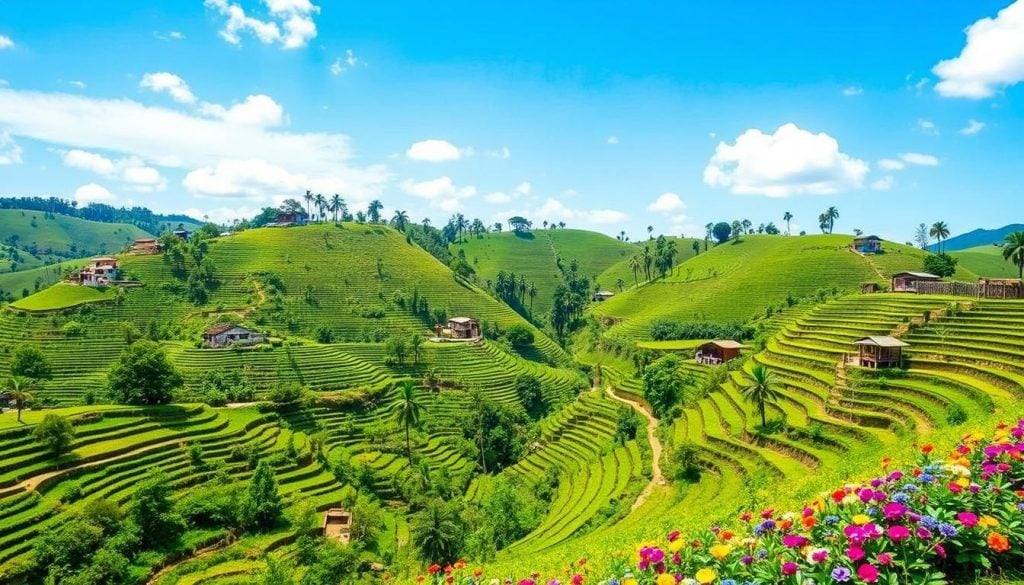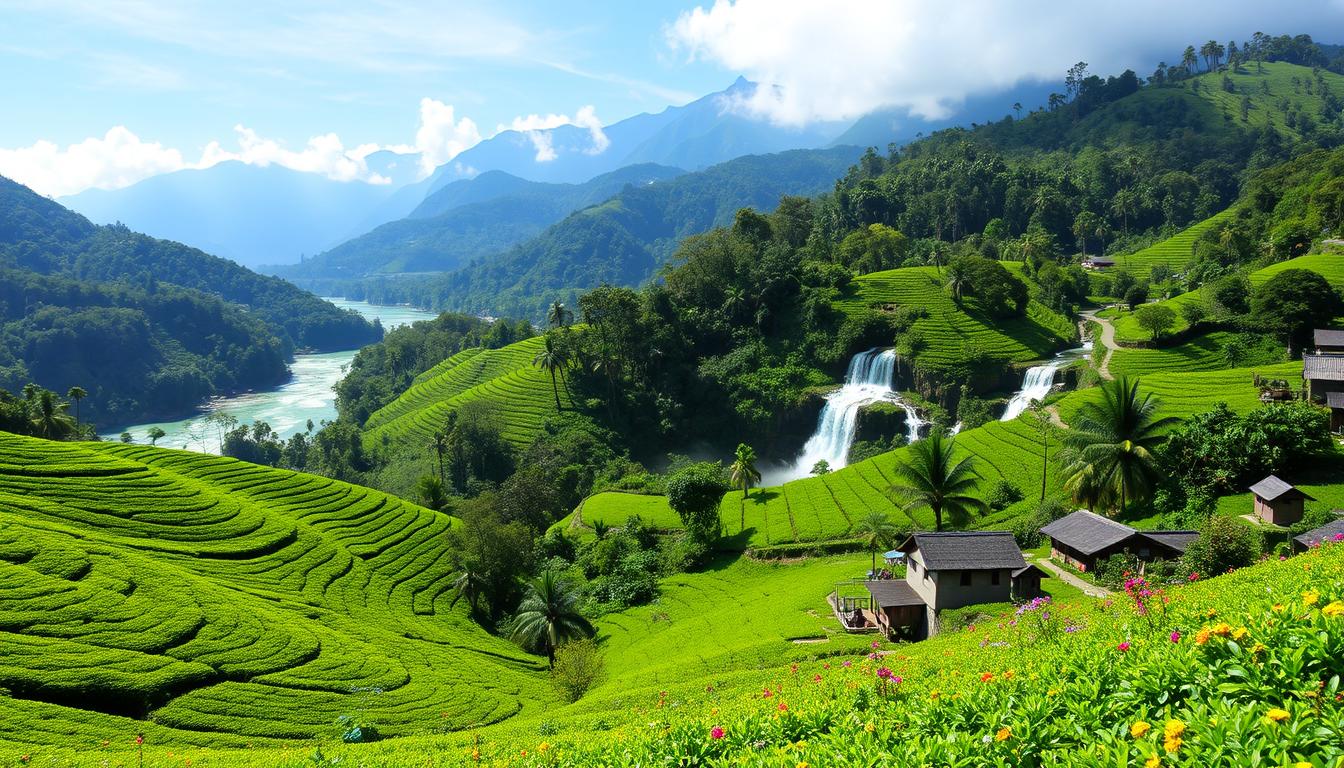



Sylhet is a city in eastern Bangladesh, on the Surma River. It’s known for its Sufi shrines, like the ornate tomb and mosque of 14th-century saint Hazrat Shah Jalal, now a major pilgrimage site near Dargah Gate. The tiny Museum of Rajas contains belongings of the local folk poet Hasan Raja. A 3-domed gateway stands at the 17th-century Shahi Eidgah, a huge open-air hilltop mosque built by Emperor Aurangzeb. ― Google
Population: 532,839 (2022) United Nations
Known for: Rolling tea gardens, green hills, waterfalls, shrines, rivers, and a strong diaspora culture
Location: Sylhet Division, northeast Bangladesh, near the Indian border
October to March (Winter):
Best weather — cool, dry, and perfect for sightseeing and hiking.
April to June (Pre-monsoon):
Hot and humid but beautiful with early rain in tea gardens.
July to September (Monsoon):
Lush and green with full rivers and waterfalls — great for boat tours but watch for floods.
By Air:
Osmani International Airport (ZYL) — direct flights from Dhaka, Chattogram, and international routes (e.g., London, Dubai, Jeddah).
By Road/Train:
From Dhaka:
By bus: ~5–6 hours
By train: Intercity services like Parabat, Upaban, Jayantika Express (~7 hours)
Ratargul Swamp Forest:
Submerged freshwater forest — boat rides through tree-covered canals.
Jaflong:
Stone collecting area, river, hills, and waterfalls — near the Indian border.
Bichnakandi:
Boulders, waterfalls, and crystal-clear rivers — popular for boat rides and swimming.
Lalakhal:
Vibrant blue-green river you can explore by boat — fed by Meghalaya’s springs.
Madhabkunda Waterfall:
Bangladesh’s largest waterfall surrounded by dense forest.
Panthumai Waterfall:
Stunning cross-border waterfall flowing from India into Sylhet’s border zone.
Hazrat Shah Jalal Shrine:
Central Sufi shrine — spiritual heart of Sylhet.
Hazrat Shah Paran Shrine:
Shah Jalal’s nephew — equally revered with panoramic views of Sylhet city.
Lakkatura Tea Estate:
Near Sylhet city — open for walks or photography.
Malnicherra Tea Estate:
One of the oldest tea gardens in the subcontinent.
Srimangal (a few hours south):
Technically in Moulvibazar, but often included in Sylhet tours for tea tourism, Lawachara Rainforest, and the famous 7-layer tea.
🚣♀️ Boat rides at Ratargul, Lalakhal, or Bichnakandi
🥾 Short hikes to waterfalls and tea hills
📸 Photography in misty tea gardens
🌿 Nature walks in Madhabkunda or Lawachara forest
☕ Try 7-layer tea in Srimangal
🕌 Visit Sufi shrines and experience traditional qawwali music (on Thursdays)
Luxury:
Rose View Hotel (Sylhet city)
Nazimgarh Garden Resort (Khadimnagar)
Grand Sylhet Hotel & Resort (near airport)
Mid-range:
Hotel Noorjahan Grand
Hotel Metro International
Britannia Hotel
Budget:
Local guesthouses near Zindabazar
Small inns near Jaflong and Bichnakandi (limited)
Local Dishes:
Shatkora Beef or Chicken – cooked with the region’s unique citrus
Panta Bhaat with mashed vegetables
Fish curries — hilsa, rui, and local varieties
Chunga Pitha — sticky rice cooked in bamboo (try in rural tea areas)
Popular Restaurants:
Panshi Restaurant – famous for authentic Sylheti thali
Woondaal King Kebab – Indian & fusion
Kutum Bari – Bangladeshi comfort food
Bhujon Bari – homestyle meals and fish dishes
Language: Sylheti dialect (a distinct Bengali variant), Bengali, and some English
Religion: Predominantly Muslim, with Hindu and Christian minorities
Diaspora: Strong cultural influence from the UK-based Sylheti community
Crafts & Souvenirs: Tea, bamboo products, handmade textiles, and locally grown citrus fruits
Monsoon season can cause road closures and river swells — check before planning
Dress modestly, especially when visiting shrines and rural areas
In remote areas like Ratargul or Panthumai, bring cash, water, and snacks
Local guides are helpful for Bichnakandi, Lalakhal, and forest zones
Day 1:
Arrive in Sylhet → Visit Hazrat Shah Jalal Shrine → Explore Lakkatura Tea Garden → Dinner at Panshi
Day 2:
Day trip to Jaflong + Bichnakandi → Visit Dawki River viewpoint → Return to Sylhet
Day 3:
Boat tour to Ratargul Swamp Forest → Visit Lalakhal River → Return or depart